By Jon Weisman
“I think Puig is definitely in this family of nearly mythical characters.”
— John Thorn
The next time someone suggests Yasiel Puig is unlike anyone who has come before, or that he’s dangerously cavalier about baseball’s unwritten rules, think of Ted Williams.
Ted Williams, commander of respect, massively serious student of hitting … so much so that in his early years in the Major Leagues, he would take practice swings in the outfield when the other team was at bat.
“He was thought to be nearly demented,” Major League Baseball official historian John Thorn says. “He was absolutely in his own head. … Because we hold Williams in such reverence today, those who don’t have a grasp of the full history of the man will not recognize that he was made fun of when he was brought in.”
Adds FoxSports.com senior baseball editor Rob Neyer: “When Williams came up, he didn’t seem to know what the rules were. He would speak to veterans as if they were underlings or inferior to him. He would practice his swing in the outfield between pitches. These were things you weren’t supposed to do. … The culture sort of beats those things out of you, which is kind of a shame for fans.”
Williams is far from the only one. As unique as Puig has been in his first 365 days in the Major Leagues, a stroll through baseball history brings a line of baseball giants who, before they became legends, were heartily mocked or criticized.
Once upon a time, Old School was itself New School, and head-scratching, larger-than-life figures existed as much then as now, if not more so.
“This is almost a paradigm in baseball history,” Thorn says, “that you have the hayseed kid coming in, the rube, the cyrus, and he is ignorant in the ways of adult life or ignorant in the ways of MLB unwritten rules and traditions, and he’s made fun of.”
That’s right, the cyrus. More than a century ago, the cyrus, or “Cy” for short, was a disparaging nickname that meant hayseed, a moniker that Denton True Young of Gilmore, Ohio earned when he arrived on the scene, according to Thorn, “wearing a $2 suit and carrying a cardboard valise.”
In other words, one of baseball’s most cherished honors is named after someone who, when he first reached the majors, was celebrated for his ignorance. George Edward “Rube” Waddell, a Hall of Famer with a career ERA of 2.16, was given his nickname for the same reason and then some.
“An imposing physical specimen for his day, the 6’1″, 196-pound Waddell possessed the intellectual and emotional maturity of a child — although a very precocious and engaging one at that,” wrote Dan O’Brien for the Society of American Baseball Research Baseball Biography Project, before quoting the Columbus Dispatch from the time. “There was delicious humor in many of his vagaries, a vagabond impudence and ingenuousness that made them attractive to the public.”
But over the years, as these players adapted to the game and the true height of their talent emerged, their legacies became more about how exceptional they were than how eccentric.
“If in college you read Joseph Campbell’s ‘The Hero of a Thousand Faces,’ this is in that vein,” Thorn says. “Because the hero is also set up to be the scapegoat, those are two sides of the same coin. And the tribe needs for the hero to have that role and to accept it and ideally to avoid it — the fatal flaw.”
Even the most outsized figure of them all, Babe Ruth, is best remembered for his on-field supremacy, with his off-field exploits little more than colorful seasoning for most. Yet in his time, Ruth’s worth as a ballplayer was repeatedly questioned.
“It seems so obvious after the fact that Ruth would be a huge superstar,” Neyer says, “and why wouldn’t anyone want him? But the winter after the Red Sox traded him to the Yankees, the Reach Guide, which was the bible of the American League at this point, referred to Ruth as an undesirable and uncontrollable player and basically editorialized that the Red Sox were smart to get rid of him and the Yankees were stupid to pick him up. … The biggest issue was that he didn’t seem to care what the established rules of the game were, and he tried things that hadn’t been tried before.
“We have a tendency to think everything we see is unique, but if we dig a little bit, we find that it’s not unique at all. There certainly have been some players that have burst upon the scene who were seen as naturals, maybe didn’t understand the way the game was to be played or didn’t know all the rules.”
A more recent example in the Majors, Neyer suggests, is Vladimir Guerrero, a nine-time All-Star with 449 home runs and a .931 OPS.
“People forget this: He was tremendously athletic in right field, but he missed cutoff men, he made tons of errors, he didn’t seem to have any real grasp of how to play the outfield,” Neyer says. “He was very fast and had an amazing arm but just didn’t know how to use them.”
And Neyer also makes an interesting point about the kinds of baserunning mistakes that Puig quickly became notorious for, recalling as a Kansas City Royals fan in the 1970s, the great players of that team – even Hal McRae and George Brett – ran the bases “recklessly.”
“That just doesn’t really go over well anymore,” Neyer says. “We even have a name for it — TOOTBLAN. But nobody was counting those in the ’70s … so basically a lot of guys were allowed to run wild on the bases, and if they got thrown out, they got thrown out. It’s not like that anymore. Now you’re supposed to play it safe, which makes sense.
“It probably makes a lot (more) sense to run wild in Cuba, because fields aren’t as good and the level of play isn’t as good. The higher level of play, the less sense it makes to take chances.”
While it’s obviously far too soon to know how Puig’s career will continue to unfold, if baseball’s history is any guide, his eccentricities could ultimately augment his legacy, rather than undermine or define it.
“To me,” Neyer says, “he only really hits the radar screen when he does something wrong, which is kind of a shame. There are so many great players, it’s hard to stand out by just being a great player. How do you separate Yasiel Puig? I think it’s tough. In a sense, it’s kind of a shame that Puig is known for the mistakes that he’s made, but I wonder if he’d be (as) famous at all without those mistakes. He’d just be another great young player.”
Thorn recalls Cesar Cedeno, who “looked like a lock for the Hall of Fame” in the early ’70s with Houston, before tapering. The historian is eager to see how it will go for Puig.
“He’s got the tremendous throwing arm,” Thorn says. “That’s what really struck me more than anything else. It struck me about Willie Mays, Bo Jackson, Roberto Clemente. This is Wonderboy, bolt-of-lightning stuff. You don’t see it that often. He’s got the whole package, but he’s raw and promise embodied, in the same way that Bo Jackson was. It’s thrilling to watch someone who’s so young, so unschooled, with such great ability.
“Will Puig be that lovely phrase, the flash in the pan? There are guys who are comets, who just shoot across the sky, then there are stars who occupy a fixed place in the firmament.”

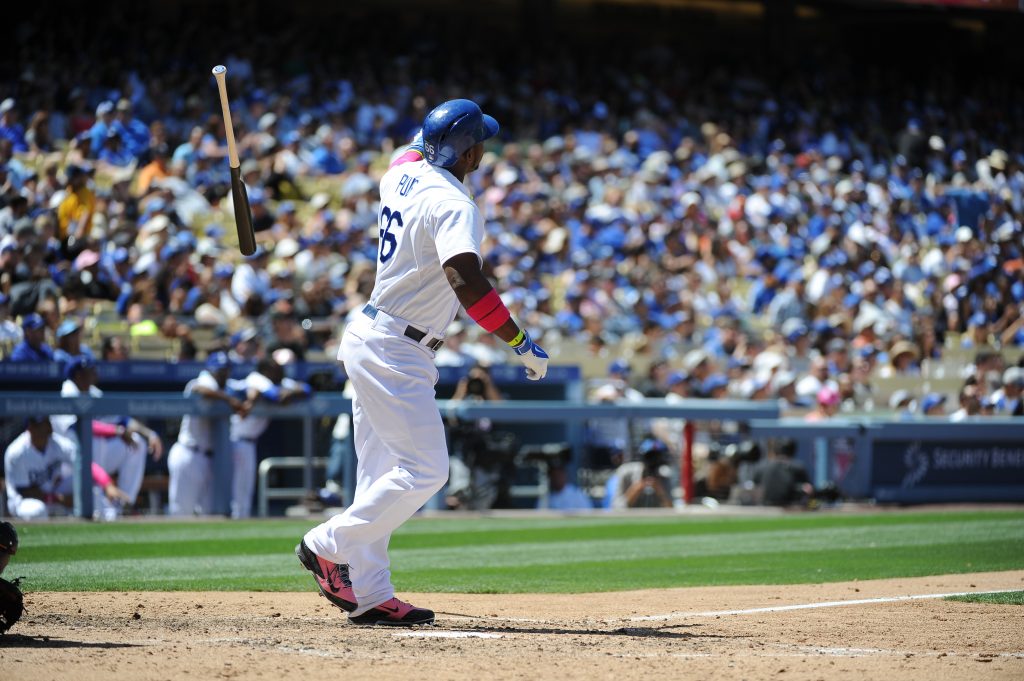
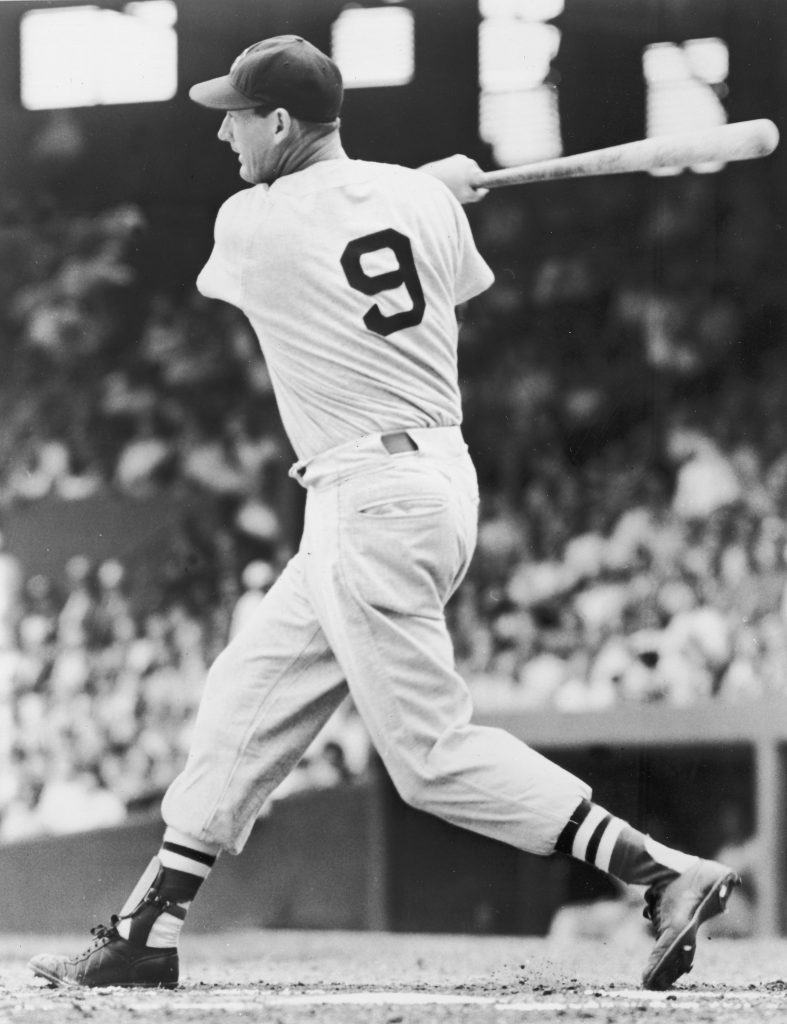
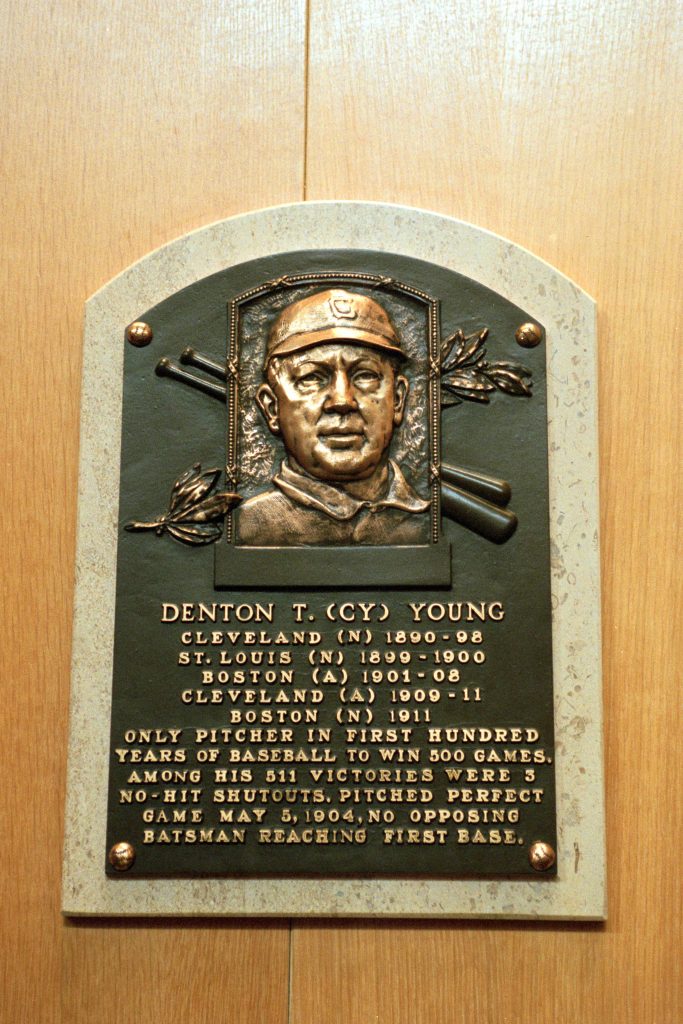
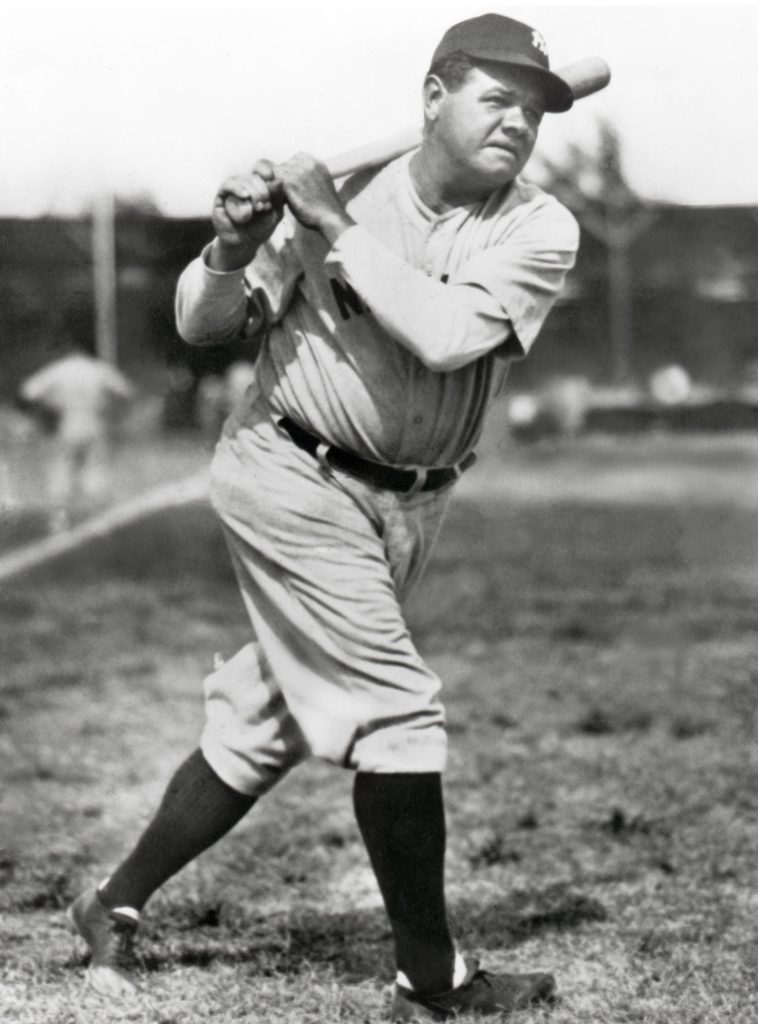
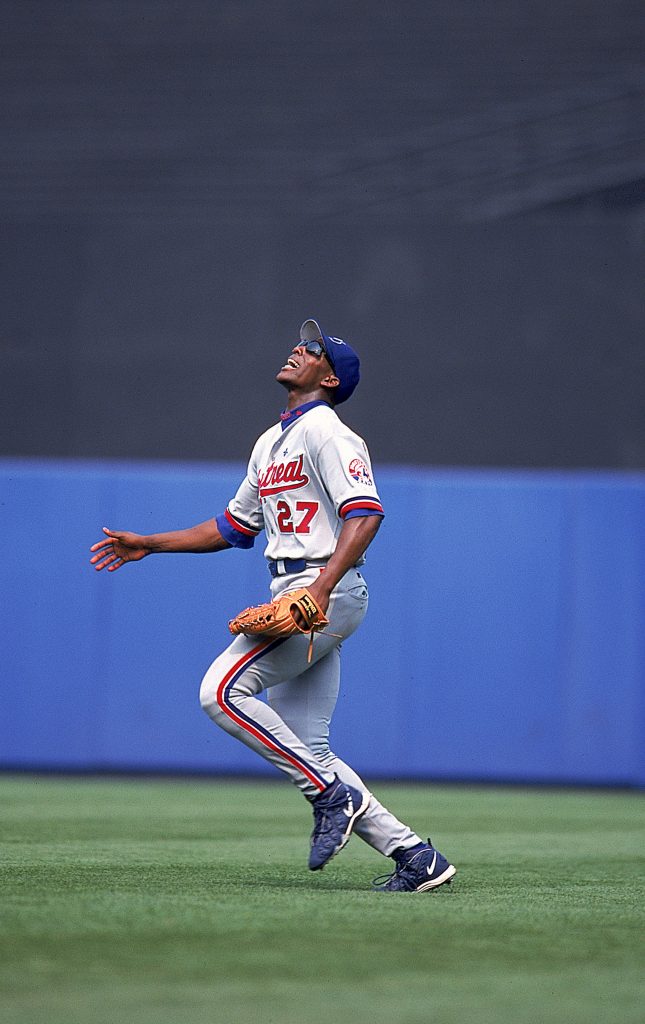
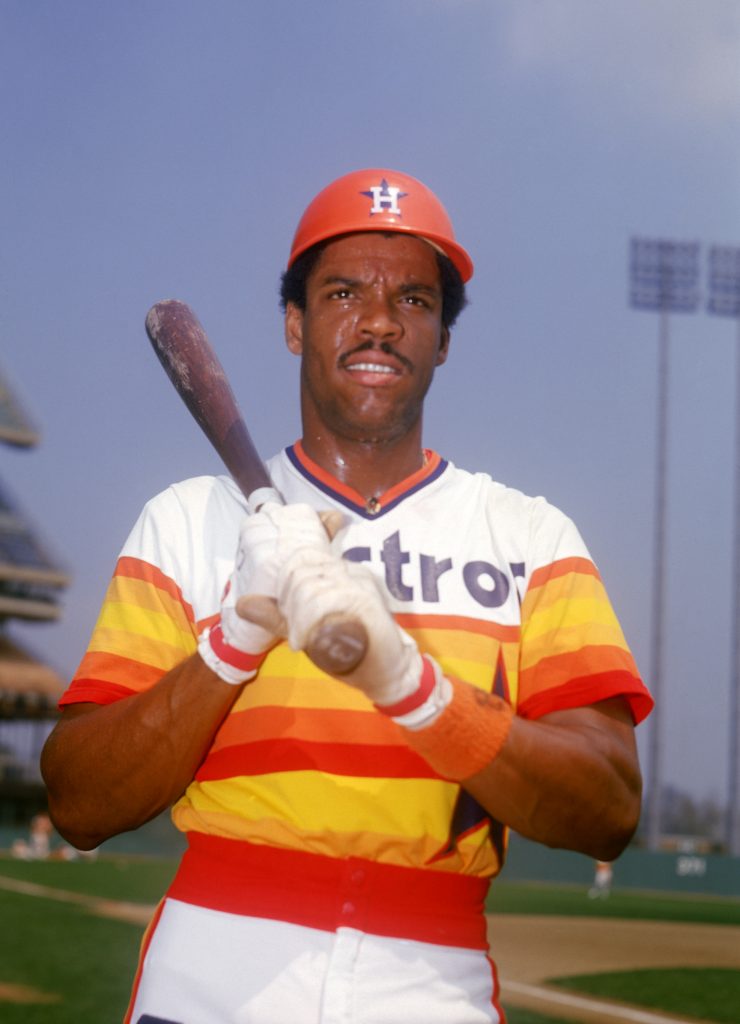
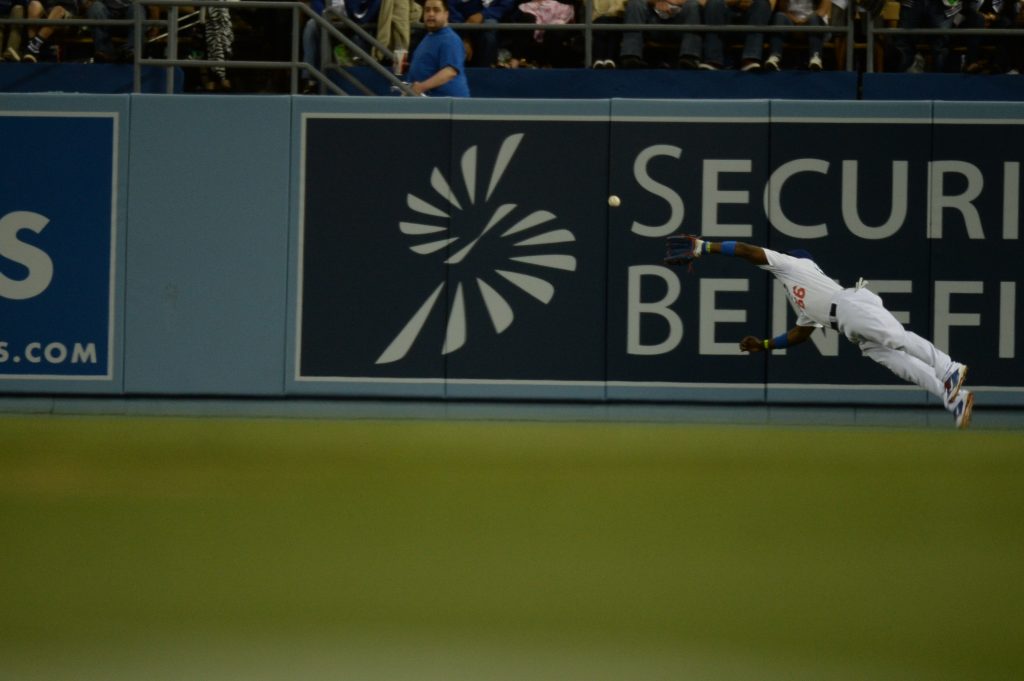



Harlan Wolfe
One of the best pieces I have read in a long time. Thanks for putting things into perspective. Despite the disappointing Dodger season to date, the games have always been fun to watch, largely because of Puig.
shellbeachfinancial
Watching his maturation at the plate has been very impressive. His chase rate has dropped in every month in the majors. He now spits on pitches he would have flailed away at last year.
oldbrooklynfan
All I can say, besides this was an interesting article, is that I never had any doubts about Puig. Now I think he’ll be better than I thought he’d be when he first came up last year.
Gale Helmholtz
Another player that no one talks about, is “Pistol Pete” Reiser of the Brooklyn Dodgers. He was a player that was supremely reckless in the outfield, and had his career cut short because he was also crashing into walls. If you look at his second season (a full 600 PA) his numbers are eerily similar to Puig.
http://www.baseball-reference.com/players/r/reisepe01.shtml
Jon Weisman
Reiser was actually the first person that came to mind for me as I was approaching this article. But the others didn’t really focus on him.
peter drysdale (@epeterd1)
Biggest baserunning mistake of all time: getting thrown out at second to end the World Series in 1926, by none other than Babe Ruth. Puig has clearly settled down quite a bit this year compared to last year. None of his craziness bothers me, unless it gets him hurt. I’m glad he’s a Dodger.
Jon Weisman
Yeah, it’s scary to imagine the reaction today if Puig ended a WS game that way.
Steve Timberlake (@Linkmeister)
Nicely done, Jon. I linked to it at my place.
Eric Enders (@nrmnbates)
Tremendous piece, Jon.
Ed Lineberry
Great article. Makes me glad Puig is a Dodger…now we need to make a run at it!!
Adam Gilson
What a phenomenal post. Also, why is this blog not promoted more prominently on the Dodgers’ website?
Jess Thedge Sibley
Unfortunately Puig is on a self centered team where players are over payed and about themselves. A team that doesn’t seem to play as a team and it showed in last years post season, yeah they powered their way through the NL West but couldn’t pull it together as a team because of egos. PUIG has the ability to be the BEST to ever play right field and maybe the game but he needs to grow up and not easy to do in Hollywood where everyone wants to be the star and where the fans show up late and leave early… thedge
Jon Weisman
I counted seven cliches in that comment. :)
oldbrooklynfan
I have to say Jess, other than what you say about Puig, I disagree with everything else.
crzblue
Why am I barely reading this post? In any case it is still a great article as it was a year ago. For a minute I thought it was from this year.
I agree with OldBrooklynfan. Last time I saw OBF was at Yankee Stadium when the Dodgers played there. The time before I ran into him at Fenway when the Dodgers were there. I originally met him fir the first time at the Inside The Dodgers blog tour many years ago when the Dodgers invited him. Cheers OBF. Happy 4th of July everybody. -Emma.